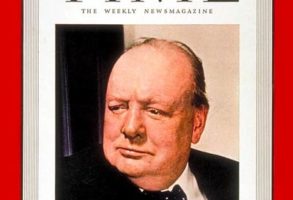
Published November 21, 2019
An earnest young writer turned in a story about how Sen. Eugene McCarthy had irritated his financial backers. It was spring 1968, and I was filling in as an editor of Time magazine’s Nation section. The young man wrote: “Senator McCarthy ruffled the feathers of the fat cats.” The metaphor was so inspired—it conjured such a marvelous little creature—that it broke my heart to delete it.
As I think about the dangerous glut of feelings in American life in 2019—hatred and anger that are not entirely different from the hatred and anger of 1968—I get a second’s relief by remembering the mythical feathered cats. By now they have produced many litters. America may be overrun by feral beasts, but it helps to think of them as no worse than felines with ruffled feathers.
“How did you feel?” the staff counsel asked the ex-ambassador during last week’s impeachment hearing. The envoy said much that was creditable and professional, but they kept asking her, “How did you feel?” She repeated that she was “shocked and devastated.” She was “appalled” to be told she was being recalled from Ukraine. The feathers of the commentators were also ruffled. They poured out their feelings. “If you were not moved by the testimony,” Fox’s Chris Wallace said, “you don’t have a pulse.”
A democracy needs as much thought as it can get, but today the world’s greatest democracy runs too much on attitude and emotion and impulse. At a Trump rally or on MSNBC’s “Morning Joe,” feelings are the medium and the message. Only the styles differ.
Public emotion, though indispensable, works best when informed by good information, mature judgment and honest leadership. Think of America’s unanimous, righteous, efficacious feelings after Pearl Harbor—feelings sparked by sudden clarity, the onset of the Good War. By contrast Vietnam, the Bad War, set off tidal waves of emotional disillusion—especially among the young, who are now the old.
Today’s young speak of “triggers”—a metaphor that for its rationale depends, without saying so, on the real trauma of combat and post-traumatic stress disorder. The cultural anthropologist Ernest Becker wrote: “A protest without a program is little more than sentimentality.” The progressive solution has been to bundle the three together—protest, program and sentimentality. That’s the winning formula, especially during the presidency of Donald Trump. The extreme peculiarity of Mr. Trump’s ways has given permission to the left’s extremes in the opposite direction.
But Mr. Trump is merely a sideshow. The 21st century’s amazing alterations in American life—the advance of new normals on every front—have been promulgated by a vast autocracy of feelings. The changes haven’t been all bad, but many have come without benefit of responsible thought: history as therapy.
A sort of arrested development is at work in such passions. In the overprivileged, they amount to a decadent luxury. In the underprivileged, grievances transmuted into feelings become a weapon of demagogues and neurotics. To the rest of us, the adult world is more complicated, and vastly more interesting, than Mister Rogers’ Neighborhood.
Mr. Morrow is the Henry Grunwald Senior Fellow at the Ethics and Public Policy Center.








